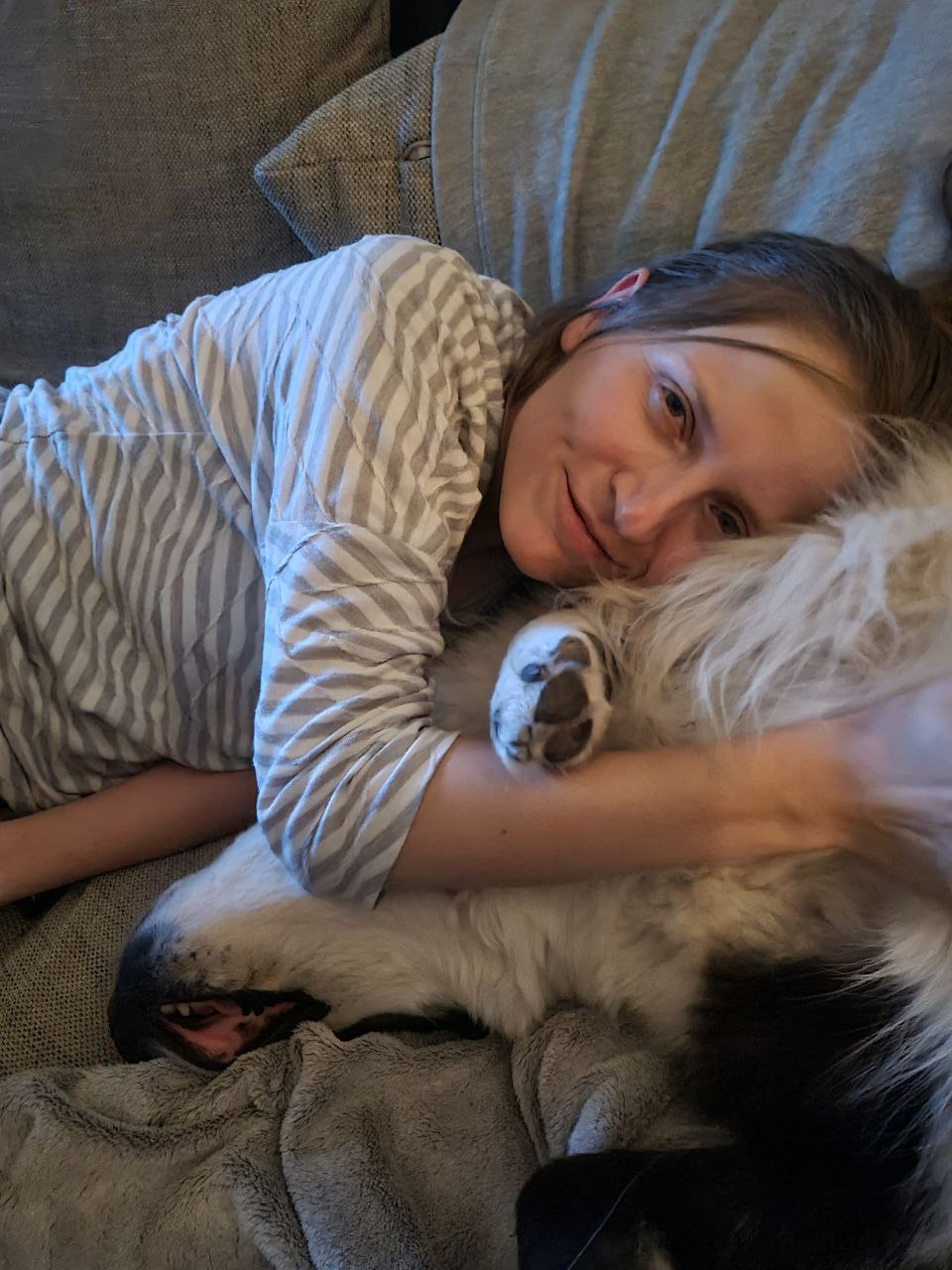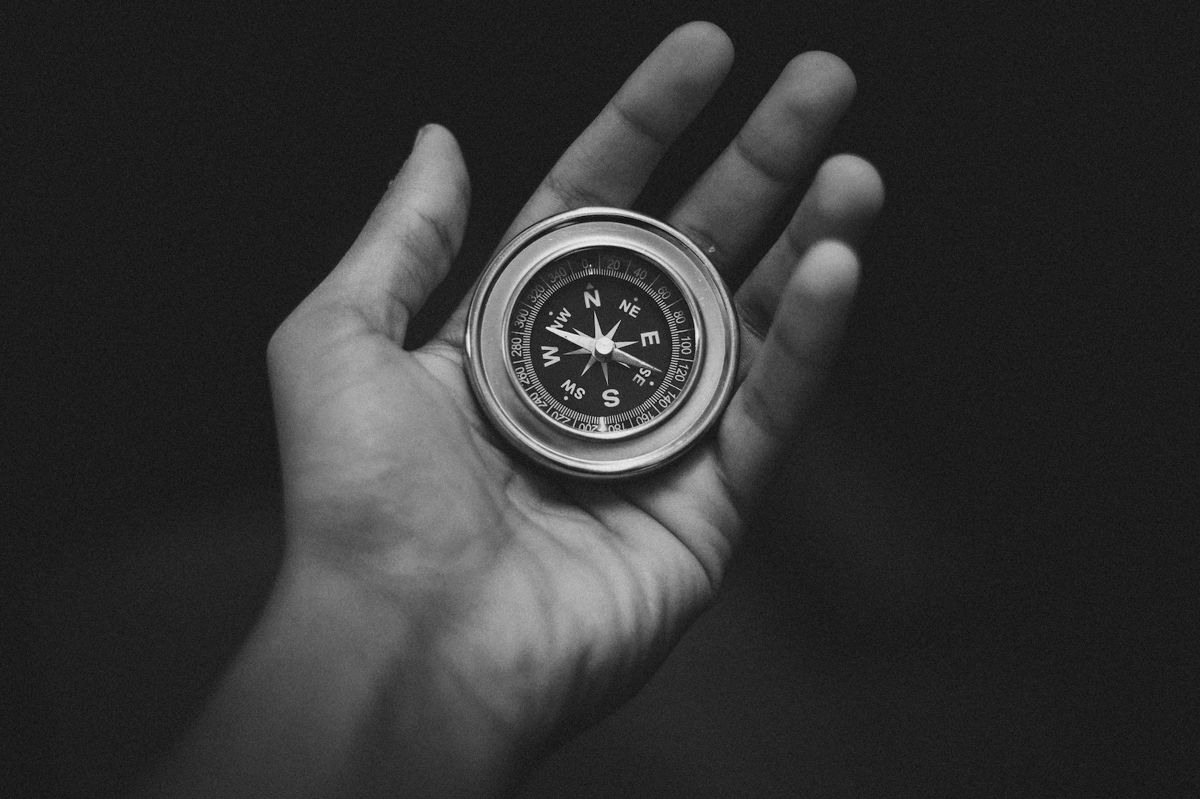Who Am I?
(Episode 34 Transcript)

Table of Contents
How Appreciation of Others and My Reality Led Me Through Difficult Times
A couple of years ago, I took my partner to New Zealand to show him the country I had been exploring as a young backpacker, a decade prior. When in Christchurch, the largest city on New Zealand’s South Island, we visited a special exhibition by the Canterbury Museum called Quake City. Now, I am not the type that likes museums, usually, but this one fascinated me. Quake City is a hands-on, interactive experience that educates on the earthquakes which hit the Canterbury region in 2010 and 2011. There is one thing in particular, I took away from that visit: I learned about a phenomenon called “Liquefaction”. Liquefaction is basically the liquification of soil that occurs when an earthquake is shaking up “saturated soils, that is, soils in which the space between individual particles is completely filled with water” (Pacific Northwest Seismic Network).
Practically, the ground turns into quicksand, eating up that which had rested upon solid ground just minutes prior: Buildings, cars, infrastructure. Water bubbles appear on the surface, lakes form where streets have been, objects above ground get sucked into the earth like stones being dropped into a pond. It’s really eerie to watch.
Of course, I only got to watch it on tape.
Why am I telling you all this? Because it is a fitting analogy to what I experienced in my personal life, some time ago. It had felt like the ground beneath my feet liquefied by the power of an earthquake. Long-held beliefs about myself had started to wobble and I was no longer walking on steady ground. To be more precise: I no longer knew who I was or what I wanted in life.
It was COVID that had caused a build-up of pressure underneath my feet, but it was I who eventually released its seismic energy.
To understand what I mean, let me tell you about the tectonic plates that were moving in my life and causing the tension.
Tectonic Plate No. 1: Profession
The one thing I had always wanted to do professionally was to work in aerospace or aviation. Ever since I was a little kid – maybe due to some illustrated children’s book – I have been enchanted by aeroplanes. Aircraft are such powerful, elaborate machines, enabling human beings to conquer gravity. With a fail-safe for every system, they are complex and intriguingly well-crafted. Add to the flying vessels themselves the intricate ballet of air traffic control, landing systems, ground support and you are quick to be mesmerized by its ingenuity.
Airports are a story for themselves. They carry the odour of painful farewell and heart-warming reunion, of anticipating the new and leaving behind the old, of expansion, of adventure, of growth. When I was old enough, I started to travel, preferably on my own. My backpack being my home, yearning to meet strangers and their refreshingly different world views, delving in foreign tongues, and trying on new perspectives in life – tasting gratitude for how far I am blessed to wander from home and all the experiences I am gifted to make. Buying a plane ticket – no return – is the most thrilling thing that I can imagine.
Given that early passion, I went through my years at school trying to work out what part exactly I could be playing in the wondrous world of travel and flying. The most obvious option would be to become a pilot myself. But who would be handed the stick with a bad disposition for motion sickness? I’ve once gotten sick on a stand-up paddle board, floating in a tranquil bay. Yes, it is that bad….
Besides, ever since I got my driver’s licence that pilot ship had sailed anyway. Few knew about it but I was carrying the secret of severe driving anxiety. No need to try out an A380 if I can’t handle my nerves in a Volkswagen…

At some point, I was flirting with the idea to focus my studies on physics and computer science, to prepare me for a career in aeronautical engineering. But I just couldn’t find the beauty in calculating the load on whatever part, so I dropped that idea as well.
Finally, on was the game for the business side of things: I applied for a spot in a competitive Aviation Management Bachelor program. I made it to the final application round which, given that they would select a handful applicants out of thousands, was a huge success! But something inside me wanted to bail out. So, I dropped the bomb in the final interview, asking whether I could keep a potential offer warm until next year, because meanwhile, I had really taken onto the idea of making plan B my new plan A. Namely: Taking a gap year (stereotypical for a German finishing their A-Levels, I know…) and backpacking New Zealand.
I wonder why I never got an offer in the end…
Now, I could share many stories my wonderful, challenging, and transformational months Down Under. However, the only thing that matters in this context is: During these months I finally had the revelation which university program would be a good fit for me – psychology. How did this epiphany come to me? Well, I discovered a thing for second-hand bookstores on my journey Down Under. Sought one out in every other town I visited. And what I observed myself leaving these shops with, time and time again, were books on self-development, neuro-linguistic programming, meditation, psychosomatics, psychotherapy, and so on. Until that time, it had never occurred to me that psychology was even a thing you could study, let alone a thing that I would be interested in.
So, upon returning home, I buried my, formerly strangely persistent, conviction to work within aerospace or aviation and enrolled in a Bachelor’s program in psychology.
Guess what they have been teaching me in my second semester? AVIATION freaking PSYCHOLOGY! Yes, that’s right. And just like that, the universe showed me a big smirk and swung my career right back around.
A few years later, with a Master’s degree in “Human Factors” in my pocket, I found myself working for Airbus, as if I had dreamed myself right into the big factory halls where the winged beauties are born…
In March 2020, when COVID hit, I had been a consultant in the aerospace industry. From one day to the next, all external personnel were fired to reduce costs, as companies in the travel realm faced their worst nightmares and burned through stacks of cash each second the lockdown held.
And that’s it. Just like that, I was not part of that world anymore. My company had needed to place me in another industry, in a completely different role. Quietly went all that I had worked for up until this day.
The worst part? I didn’t even care.
The industry had not lived up to my expectations, to my childhood dreams. I still loved aircraft, just like I always had. But I did not love the cultural environment, did not love the big, traditional, slow-moving corporate world that was the cradle of my flying babies. I did not thrive there, I was craving to make a bigger impact, in a smaller, more creative, and more human-centred environment.
And so, I watched myself shrugging, even letting out a sigh of relief, and could not help but feel like I was stripping away my very identity. My professional one, anyway.
Why was I happy about leaving the world I have worked so hard to be a part of?
Why did the next best thing, I accidentally ended up with, feel okay?
And since when was I someone who would settle for “okay”?
Who was I going to be, what was I going to do in the long run?
I didn’t know.
Tectonic Plate No. 2: Energy
I have known myself as an ambitious workaholic, a curious explorer, a non-stop learner. Many times, I have chosen travel over comfort and ritual of home, a challenge over settling, one or two more projects than what was good for my stress level.
Symbolically, March 2020 marks a violent transition from a stimulus-dense lifestyle to acknowledging my need for a stimulus-poor one: Me and my partner, the one I visited the Quake City exhibition in New Zealand with, went from a beach in Colombia to our little balcony in Germany in one frantic chase for a ride home before international air traffic would close completely.
You know what I hated about being locked up in social isolation? Nothing!
Picture it (I mean, you will likely remember this from your own experience): No social obligations, no birthday presents to plan, no hopping from one event to the next in one evening, no working out the logistics of travel, no spending hours on public transport, no noises, no strangers standing too close, just… peace, space, slowness.
Instead, I enjoyed spending a lot of time in my own little world, relaxing into the lack of chatter around me, writing, podcasting and creating in quiet focus after work and on weekends, going to bed as early as I wanted (lacking any social obligations to stay up late), and being as thrillingly boring as I craved to be.
Observing how I reacted to the reduction of stimuli in my life gave me the first clue. Observing my reaction when the country lifted restrictions and started opening up again, was even more eye-opening: I resisted it when my calendar began to fill again with face-to-face social commitments. I secretly hoped that the restrictions would not lift so soon. Hey, and of course I got rewarded by the universe with subsequent waves of COVID infection surges and resulting decreases in social life.
What was wrong with me?
Why was I stressed out by the thought of getting invited to gatherings with my friends?
After the first blissful months of working from home , I got assigned to that new project, the one outside of the aerospace industry, and I was forced to travel again. I spent weekdays in another city, working in the client company’s office every day – it seemed that organisation was one of the few out there that didn’t get the memo about working from home as a possibility. However, my new work life became very habitual. I did travel but every week looked the same, so even the travel stopped demanding noteworthy mental energy after a while. The new project swallowed me up and I gradually decreased the number of side projects and other tasks I usually took on for my company. Focussing felt good. The rituals felt good. Fewer context switches, less meeting new people, less short-notice travel… it felt good.
But it did not feel good to be that kind of person.
Why was I so content with a minimum of activities, a repetition of basically the same week every week, and being on my own? That was the opposite of what I viewed myself as in the past!
How did this low energy and this easily overloaded nervous system of mine – two things I had entirely overlooked in my busy past – fit into the kind of life I had aspired to lead? A life of adventure and travel and meeting people and achieving lots?
How could I have all that as the introvert, slightly autistic, rheumatoid arthritis battling, boring person that I appeared to be now?

Tectonic Plate No. 3: Love Life
Me changing industries was the beginning of an even greater trial for my identity. Because, at work… I met a man. It completely caught me off guard.
Like I said earlier, I had already been in a relationship at that time – and I still am, by the am. Me and my original partner had been talking about options of a not fully “closed” relationship before my meeting that new person. I have always been open to the rainbow-coloured umbrella of polyamory and have explored my fair share of non-monogamous constellations over the years. Naturally, I laid all of that out on the table when meeting my partner and we had agreed on talking about options when the time came.
If you want advice from someone who learned it the hard way: The right time to talk about all of this is when there is really no practical application whatsoever in sight. Talk through scenarios and figure out your rules way before you plan to apply them. Well, I didn’t.
But maybe it would not have helped anyway, because I had been so convinced that I would not fall in love and want to be in another deep, romantic relationship. One primary relationship with maybe some adventure, a crush, “friendship plus” on the side. That was the model I pictured. The latter is how I labelled my intentions with that new man, initially. And both he and my existing partner were open to me following this idea.
Boy, was I wrong.
I did fall in love, heavily. And I did revoke this honest conviction of mine, that I could not, would not want to engage in a second, serious romantic relationship.
What followed was a long journey of self-discovery, earnest conversations with the men involved, painful insecure moments, and adjusting to the new situation on all sides.
I will not document the details here because it is not only my story to tell. What I want to share about my part of the story, is this: I have lived through distressing confusion, self-doubt, guilt, but also immense gratitude, growth and love, thanks to this seismic activity in my life.
Personal Liquefaction aka Dissolving Into Person Soup
So, with these three tectonic plates moving in surprising directions, my life had turned upside down and inside out.
Fast forward: I am now living in two cities, two homes, with two partners, and even a sweet furry child – my doggo, Ally. Despite what you might think, this private life of mine is wonderfully low-maintenance, peaceful, and very much in alignment with my energetic resources. On the professional side of things, I have changed companies twice now, discovered a whole new professional role, and I am building my own thing apart from the employed arena – this podcast and my writing. And hey, by the way, I have re-entered the world of tourism and air travel through the side door.
It all turned out well but, of course, I could not possibly have seen this bright future through the dust that my personal earthquake had stirred up all around me.
WHYLD Podcast guest Nanda Jansson – I mentioned her before – introduced me to a piece of writing by Martha Beck. Martha Beck is a sociologist, coach, and author of impactful books like “The Way of Integrity”. In an article on her website – you might be familiar with this already since I quoted it in the episode with Nanda – Martha writes:
“Here’s the Deal
The first phase of change is the scariest, especially because we aren’t taught to expect it. It’s the time when we lose our identity and are left temporarily formless: person soup. Most people fight like crazy to keep their identities from dissolving. “This is just a blip,” we tell ourselves when circumstances rock our world. “I’m the same person, and my life will go back to being the way it was.”
You know, when I first read the term “person soup”, it felt so satisfying. YES, YES! This is exactly what I have been feeling during these times of change. Like my identity and the world around me were starting to dissolve and become a treacherous swamp. I, too, fought like crazy against this self-induced attack on my identity and against losing the steady ground beneath my feet. Like an earthquake and like resulting liquefaction of my foundation.
Who was I if I did not want what I had always wanted, if I did not believe in what I had always believed? If I let life brush me off my path as if I was a puny little leaf, blown away by the slightest breeze?
And if I had to let go of who I thought I was… what was next? Who was I now? And, who was I becoming?
The issue with phases of transition is that they are exactly that: phases. They might start overnight and surprise the hell out of you. But then they will patiently accompany you until you figure out how to solidify the person soup that you have become.
I have always prided myself to be this determined, steady, stable character. I like consistency and being able to connect the dots in my biography through a logical, traceable story. I did not at all like being that wobbly, intangible thing. I was scared it would make me appear untrustworthy, unreliable, and lost.
To my help, one day, came a good friend, dropping the inconspicuous advice:
“Start with knowing that you don’t know.”
Wow.
I had not anticipated the immense relief this simple sentence would bring. “Start with knowing that I don’t know.” And I did.
I acknowledged the fact that I had no clue what was happening or where this was headed. Trying to resist or control this brewing of person soup would not help my case. And I did not need to know anything except: My life and identity are experiencing growing pains and I had better surrender to the process.
Is this an early mid-life crisis?
Or is it rather that life is an endless series of freezing and unfreezing, becoming person soup and then again solidifying into a new identity?

New Identity
In the midst of this wibbly-wobbly experience of dissolving, I was searching for one thing that could give me something to hold onto. A golden thread that would help me connect all the dots in my biography and reflect my core in any circumstance. A reflection of my soul no matter which environments, roles, professions I found myself choosing in the future.
I asked myself: What is the one thing I want to master in my lifetime?
The answer came to me with no resistance at all. The answer was: I want to be a master of appreciation.
Appreciation?
Yeah, I get it sounds weird, it sounds cheesy. But no joke. My relationship with appreciation as a concept goes back to my early childhood. My dad had instilled it in me. Maybe it’s a thing that many parents share, but I assure you, my dad is a world champion in appreciation. No one celebrates every little victory of their kids so enthusiastically. And he probably also belongs to the elites when it comes to expressing gratitude for what is good in his life. He loves helping people, he respects animals deeply. And he makes sure he speaks of others in an appreciative and positive manner. My dad made me aware of the fact that we, as human beings, are quick to hand out criticism but thrifty when it comes to praise. I have talked about this before, in one of the early episodes of the podcast, number 3 called “The Hidden Superpower”.
So, I adopted these virtues of gratitude and of appreciating others and they have become a core driver in my life.
And so, the choice of subject for my mastery made absolute sense.
I wanted to master appreciation, because this I had full control over. I could make others feel my appreciation for them, I could make another person’s day, I could lift them up, help them believe in themselves, and grow as a person from any position or role. From the checkout of a supermarket, from a fancy consultant’s office, from the receiving end of unemployment benefits, from the sickbed, from behind a podcast microphone, from the stance of a friend, a colleague, a partner, a partner of two partners.
In the end, it did not matter what I called my work, how I lived my life, with whom, or where – as long as I knew my WHY.
My WHY will follow me anywhere and it does not care whether I am person soup or solid rock.
And this is it. That’s the precious revelation that guided me through and out of the swamp. Surrendering to this knowledge and to all that I did not know – yet – made the ground beneath my feet eventually turn solid again. And I got to freeze a new version of identity, to preserve for now, until… well, I guess, until the next unfreezing, the next liquefying, the next transition that makes me question what I thought I knew about myself.
If I had known they taught the deepest life lessons in Quake City, I would have paid more for the visit…
photos: Artem Malushenko, Nur Andi Ravsanjani Gusma, Bakr Magrabi
[…] My ups and downs and ever-changing health updates had rendered me uncomfortably unreliable at work. Being reliable is a big pillar of my identity, so I hated being that undependable. I would schedule meetings and then postpone, postpone, […]